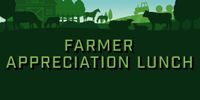École Morden Middle School students are reflecting on their work to create their own land acknowledgements as part of Indigenous Education taking place at the school this week. Students had the opportunity to share their final class project with Swan Lake First Nation (SLFN) Traditional Elder and Spiritual Leader David Scott, who listened to each class, gave feedback, answered questions, and shared stories with them.
Mrs Bethany Loewen's grade seven class put this land acknowledgement together and presented it to Elder Scott Tuesday morning.
"Tansi, hello. We would like to acknowledge and recognize that our homes and schools are located on Treaty One Land, the original lands of Anishinaabe, Cree, Oji-Cree, Dakota and Dene peoples, and on the Homeland of the Metis Nation.
We would also like to acknowledge the physical, mental, and sexual abuse children and families went through during their times at Residential Schools and the pain experienced by the families who lost children, their cultures, languages and futures.
It is important to listen to all the stories that survivors continue to share and to remember and respect those who struggled because of the schools. We are continuing to repair, relationships that have been shattered between indigenous people and the rest of Canada, while remembering those who didn't make it home. We also promise to keep learning about truth and reconciliation together. Miigwech, thank you."

As a traditional person, Scott struggles with the idea of land acknowledgements saying they are colonialistic to him as they are right now. He believes land cannot be owned by anyone but is to be shared and interacted with. He emphasized the treaty was an agreement between the Ojibwe and Chippewa people and the British Crown, therefore it should be recognized in the acknowledgement. Despite the past, Scott says he never looks down on people, as the first law his people lives by is to look at all people as human beings first and by identifying the different Indigenous people groups, adding, it takes away from the message and makes us look at people differently.
He addressed another area needing to be corrected.
"There was one class where they actually apologized and my message to them was, 'You have nothing to apologize for.' It's the adults in the room that are responsible for the mess that we live in. I don't want to traumatize even our kids and the kids from outside the community to retraumatize them by saying, 'It's your fault.' That isn't what that's supposed to be. And then the one young lady asked me, 'What mess did you create?' I said, 'Our breakdown in our relationship.'"
 Rylee Harms, Ally Fleming, Sophie Klatt
Rylee Harms, Ally Fleming, Sophie KlattRylee Harms is a student in Loewen's class and confirmed her understanding of this feedback.
"So originally we had, we would also like to acknowledge and apologize, but he said we were like 12/13 years old, and we didn't do this. Our elders did it and older people, but we should not have to apologize because we didn't do it."
Sophie Klatt chimed in, "Like Riley said, we acknowledge that we don't need to carry the burden, learn about things so that we can help stop happening further in the future."
They decided, because of this feedback, to change the word "apologize" to "acknowledge."
Ally Fleming said she wants to bring awareness to areas that still need to be reconciled. Giving an example of one area needing to change.
"They have to get permission for almost everything because they don't really own any land, they don't own any houses."
All three students expressed their wishes to bring a better understanding of the past and present and to make a better future for Canada.
Klatt explained her understanding of treaties and the work that still needs to be done.
"Treaties, at the time, were basically an agreement to share knowledge and land, and when that treaty was broken, it sort of sent them by themselves, trying to get by on their own with the government not paying them enough and so they have to work to get extra money and so that they can pay for their families and have food and water. Although, there are still over 100 boil water advisories all over Canada."
 Swan Lake First Nation (SLFN) Traditional Elder and Spiritual Leader David Scott listened to each class, gave feedback, answered questions, and shared stories with them.
Swan Lake First Nation (SLFN) Traditional Elder and Spiritual Leader David Scott listened to each class, gave feedback, answered questions, and shared stories with them.In 1984, Scott called for an end to the segregation of his people and urged people to find ways to work together. He said at that time, no one took him seriously as he was a young man. Now, Scott appreciates his relationship with the Mayor of Morden and with the people of Morden and Winkler where he works diligently, on behalf of SLFN, to deal with racial issues in the area. He loves the work he does here.
Recently, he has received funding through Environment and Climate Change Canada (ECCC) to run a youth program bringing Indigenous and non-Indigenous youth together to better understand each other and why Indigenous People think the environment is worth saving. The program is going into its third year. During his week with students from EMMS, a slide show of this work played while he shared his feedback and answered questions.
His message to the students and young people he meets is, "Do everything you can to try and save the world we live in and live with it in harmony and each other as well."

















